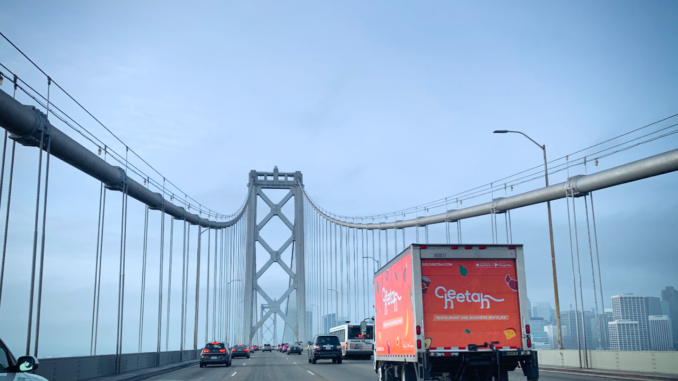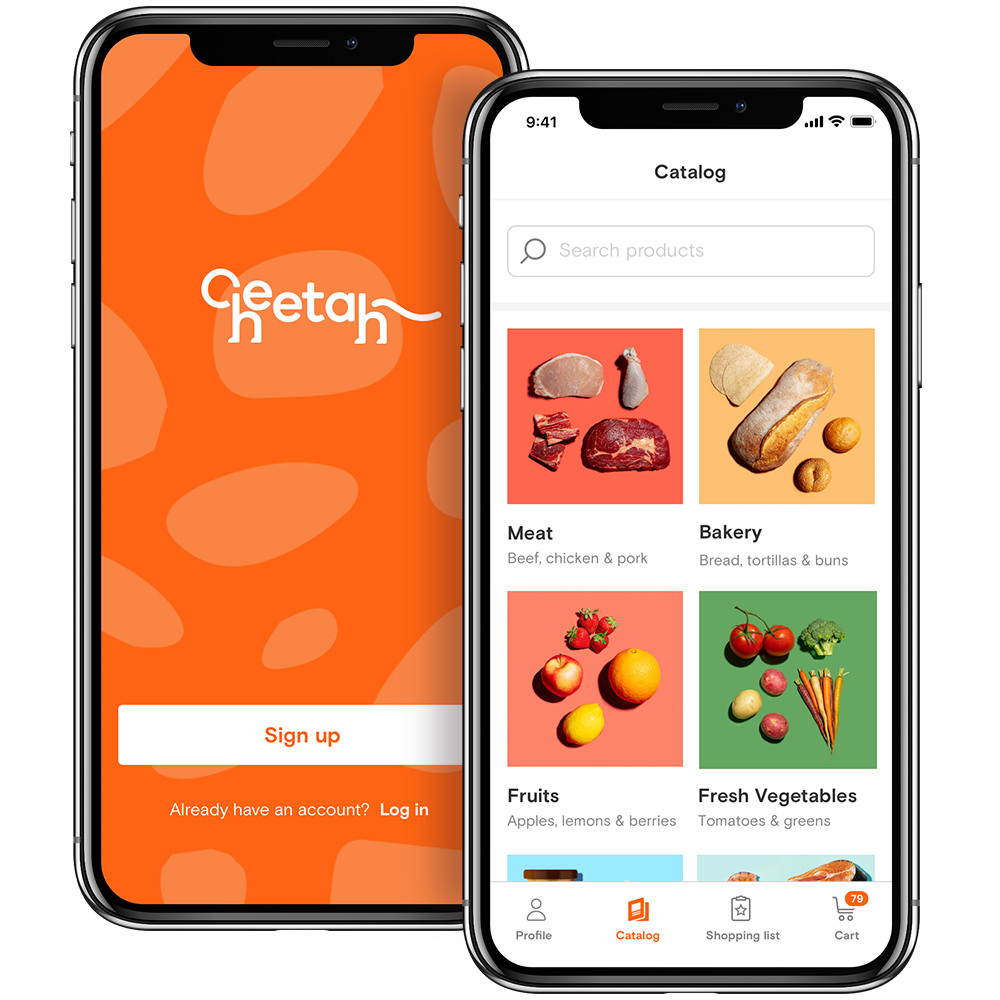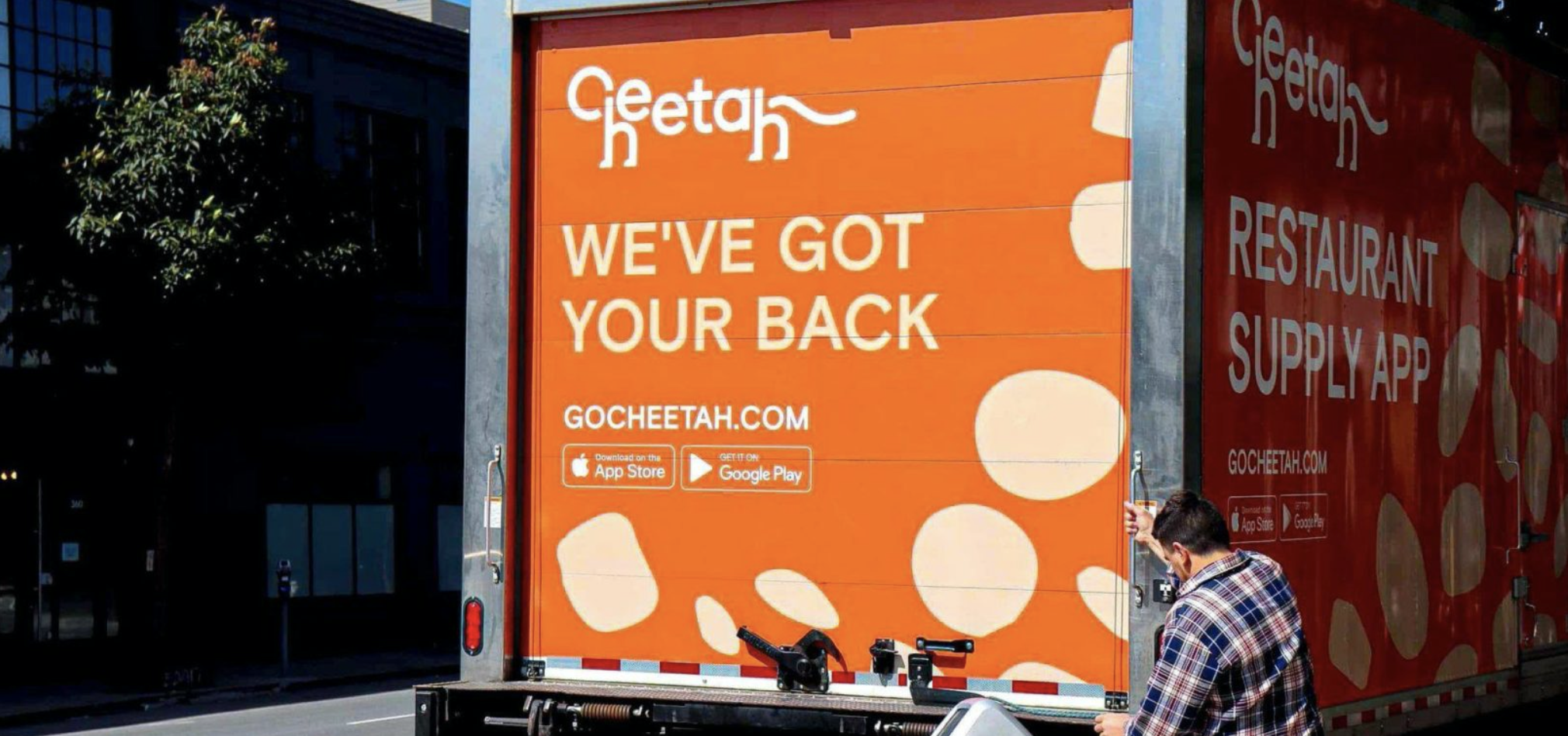
By RTN Staff - 7.25.2022
Cheetah, which bills itself as a technology supply chain company operating a wholesale food and restaurant supplies marketplace, has maintained a relatively low profile since its founding in 2015. That, however, is bound to change with the company’s rapid growth and increased market presence.
Earlier this year, the Pleasanton, California-based company closed a Series C Round of financing totaling $60 million, reportedly bringing its total investment to $127 million. Last week, it announced that it had concluded three acquisition transactions: Palo Alto Foods, Esteson, and Joseph Martin Foods.
The new acquisitions mark a major milestone in Cheetah’s plan to build one of the largest local and specialty, product-driven food distribution companies in the United States. The company’s marketplace app is already used by more than 3,000 restaurant owners and operators, according to its website, with over 350 thousand orders to date. Buyers can browse thousands of local, artisanal and specialty products and place their orders for next-day delivery.
Cheetah expertise in technology-enabled restaurant supply chain operations runs deep. The company was founded by food industry veterans, supply chain and logistics experts, chefs, engineers and data scientists focused on digitizing and automating the process of ordering and distribution. It’s marketplace and “last-mile logistics” platform are accessible with the ease of an Amazon-like shopping experience and with a stated commitment to pricing transparency. Cheetah aims to democratize the buying process by ensuring that “all customers receive the same fair price, regardless of their size or negotiating skills.”
Cheetah’s marketplace provides smaller, artisanal vendors a major platform for last-mile distribution, changing the way restaurants have access to unique, local products. As such, the platform would seem to fit well with giving greater access to the customers of Palo Alto Foods, Esteson, and Joseph Martin, as the heads of these companies readily attest.
“This is such an exciting and important time in the history of our company,” said Paul Jensen, CEO of Palo Alto Foods, considered a pioneer in the adoption and celebration of organic products. “This is a business my father owned when we were just selling eggs. Forty-one years ago as children, my brother Eric and I worked side by side with him before eventually taking over the company. I can remember the landscape of Silicon Valley in a very different way. We’ve been fortunate to successfully grow with our customers such as Google, Pixar, and Stanford Hospital, over the years. We are ecstatic about taking the history and lineage of Palo Alto Foods and weaving it into Cheetah’s vision. The technology tools and infrastructure Cheetah has developed will only make our customers happier and I’m looking forward to where we can take this together.”
While details of the transactions involving Esteson, Palo Alto Foods, and Joseph Martin are being kept confidential, the acquisitions are reportedly structured to ensure that all parties are aligned in the company’s success through a substantial equity component. Nearly all of the staff of all three companies, all of which have been operating in the Bay Area for decades, will reportedly be part of Cheetah moving forward.
The acquisitions further solidify Cheetah’s plan “to continue to provide the local community of independent restaurants in any market, the same attention and customer experience of dealing with a smaller family-owned distributor, but with the more robust buying power and capabilities of a tech-enabled, national firm,” according to a press statement. Cheetah identified the businesses and their founders as “phenomenal enterprises with rich history and values, perfectly aligning with the company’s mission.”
“The foodservice industry, post-pandemic, is an increasingly difficult landscape to navigate, but independent restaurants are still the lifeline of the foodservice industry,” said Na’ama Moran, CEO, and Co-Founder of Cheetah, in a press statement. We found a path to partner with dedicated family-owned businesses to create a scalable, increasingly efficient business that strengthens the breadth of our product catalog, the capabilities of our now broader team, and enhances the customer experience for the entire Cheetah family of restaurant customers. It’s critical to note that the storied history of these businesses won’t disappear, they become celebrated and part of a combined story of a growing company that recognizes the generations of effort that go into creating companies like these.”
Technology-enabled services and support are of vital importance to independent restaurants and food entrepreneurs who have been struggling during the pandemic. Independent restaurants, when combined, make up the largest part of the foodservice industry in the United States. With Cheetah’s marketplace continuously adding local and sustainable vendors into its long list of partners, the company is betting big on the post-pandemic rebound and renaissance of the restaurant industry by helping restaurants succeed with its products and tools.
Going forward, Cheetah also aims to become “the sustainability leader” in foodservice distribution. Major efforts are underway to create a truly sustainable company that fits with the needs and demands of today’s restaurants and restaurant customers. Sustainability along with transparency — price transparency, nutritional transparency and sourcing transparency — are reportedly at the core of Cheetah’s national and international expansion plans. With a major funding round and three new acquisitions under its belt, Cheetah is clearly making good progress in bringing those plans to fruition.

